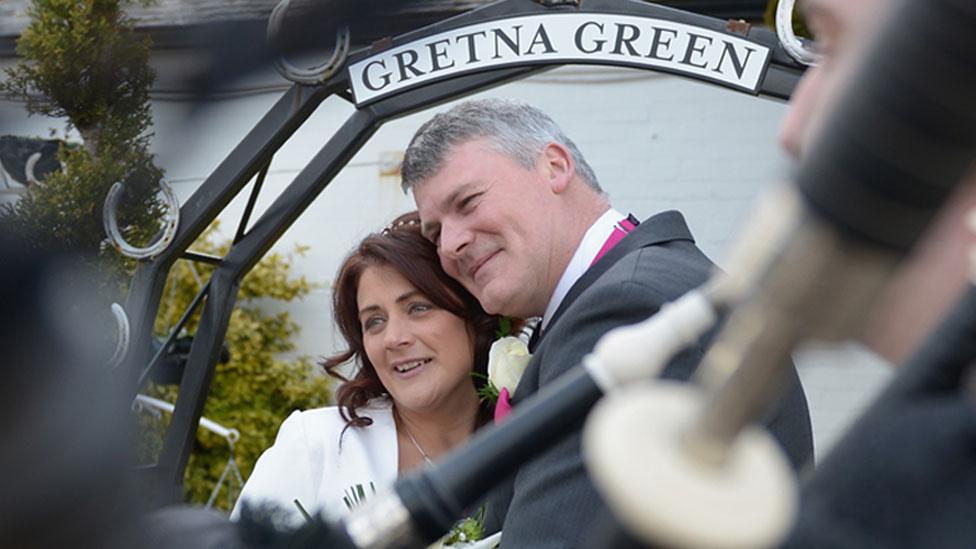Gretna Green: The wedding capital where no-one can get married
- Published
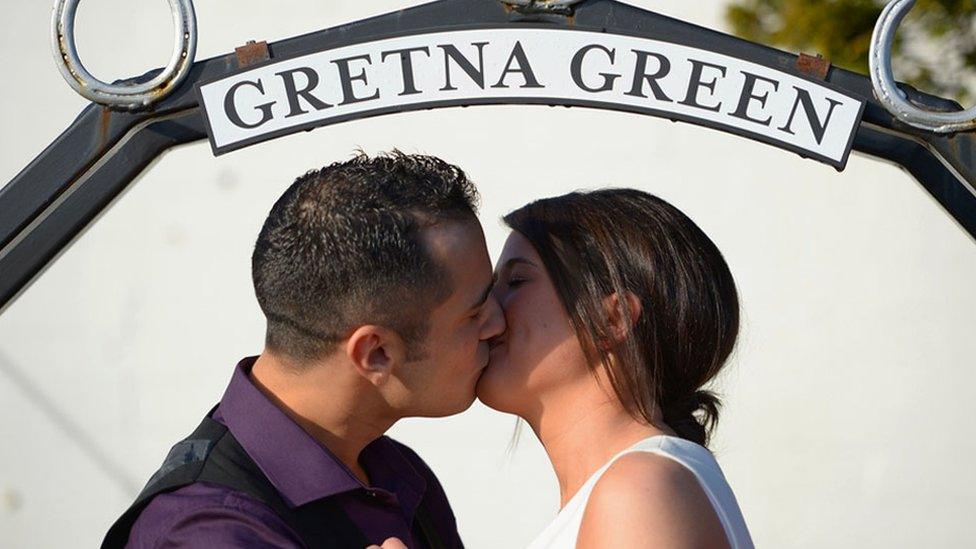
Gretna Green usually hosts thousands of weddings each year
Gretna Green is Scotland's wedding capital, playing host to more than 3,000 ceremonies every year - but has been like a "ghost town" during lockdown.
The area owes its popularity to its location just north of the border with England.
It became a destination for young lovers after the Marriage Act was passed in 1754 in England, which outlawed marriages without parental consent if either party was under 21.
A tradition developed of couples travelling over the border to Scotland, which had more lenient laws.
It remains a magnet for marriages. According to Dumfries and Galloway Council, about 12% of Scotland's weddings take place in the area each year.
That was recently calculated to be worth £37m to the region's economy.
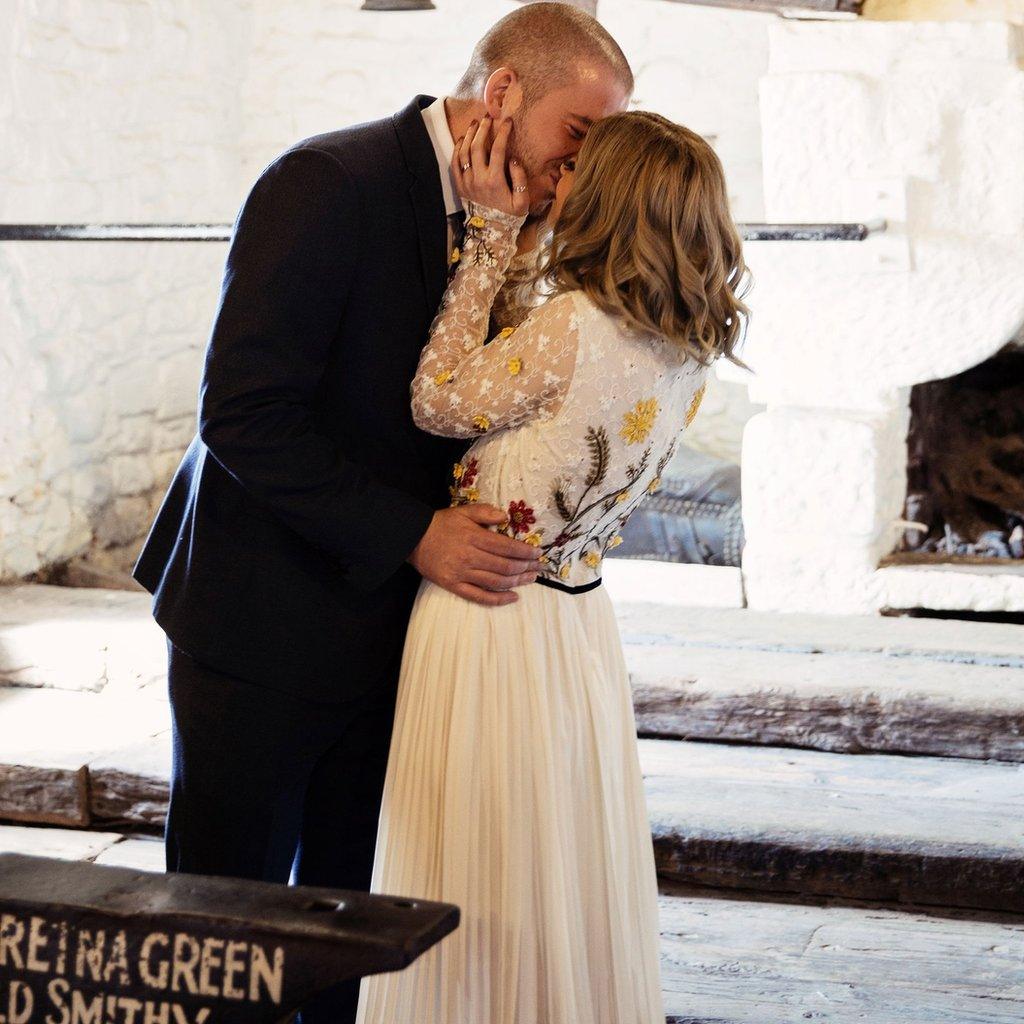

Alasdair Houston is the chairman of Gretna Green Ltd, which runs a range of businesses in the area - most famously The Old Blacksmith's Shop wedding venue.
He said there was no doubt the area had been "dramatically affected" by lockdown.
"Tourism, hospitality and wedding business activity has been cancelled since 23 March," he said.
"Normally in the spring and early summer the village is a hive of activity, full of energy and excitement as we welcome thousands of visitors from all over the world.
"We would also normally be hosting the weddings of many couples on one of the most emotional and important days of their lives."
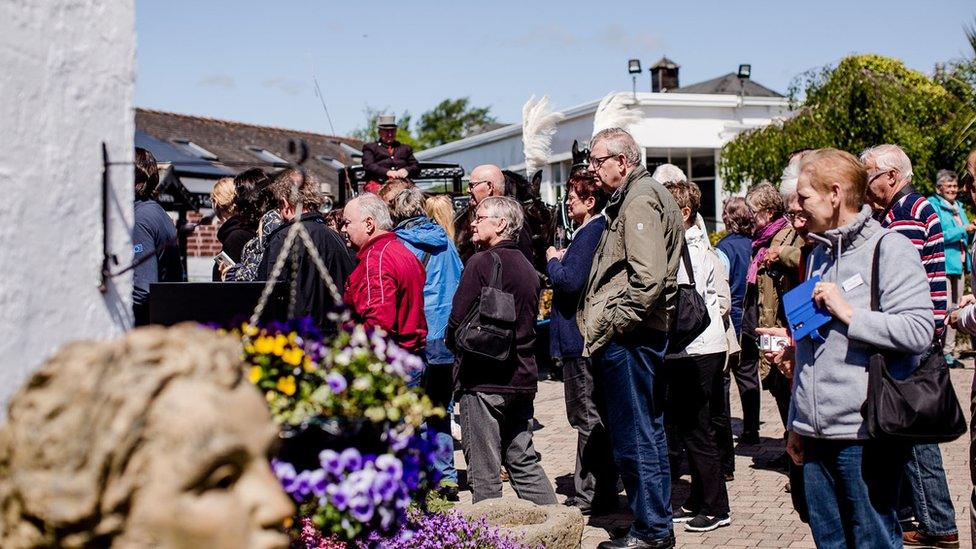
The early summer would usually see visitors flocking to the area
However, 2020 has been a very different experience.
"This year it's been like a ghost town," he said.
"It feels like the heart of the village has been squeezed and temporarily stopped beating."
His own operations have been hit hard.
He said the business had lost all its income, but still carried "significant costs - so we are burning cash fast.
"On a business level, you can't plan for the whole world shutting down at once."
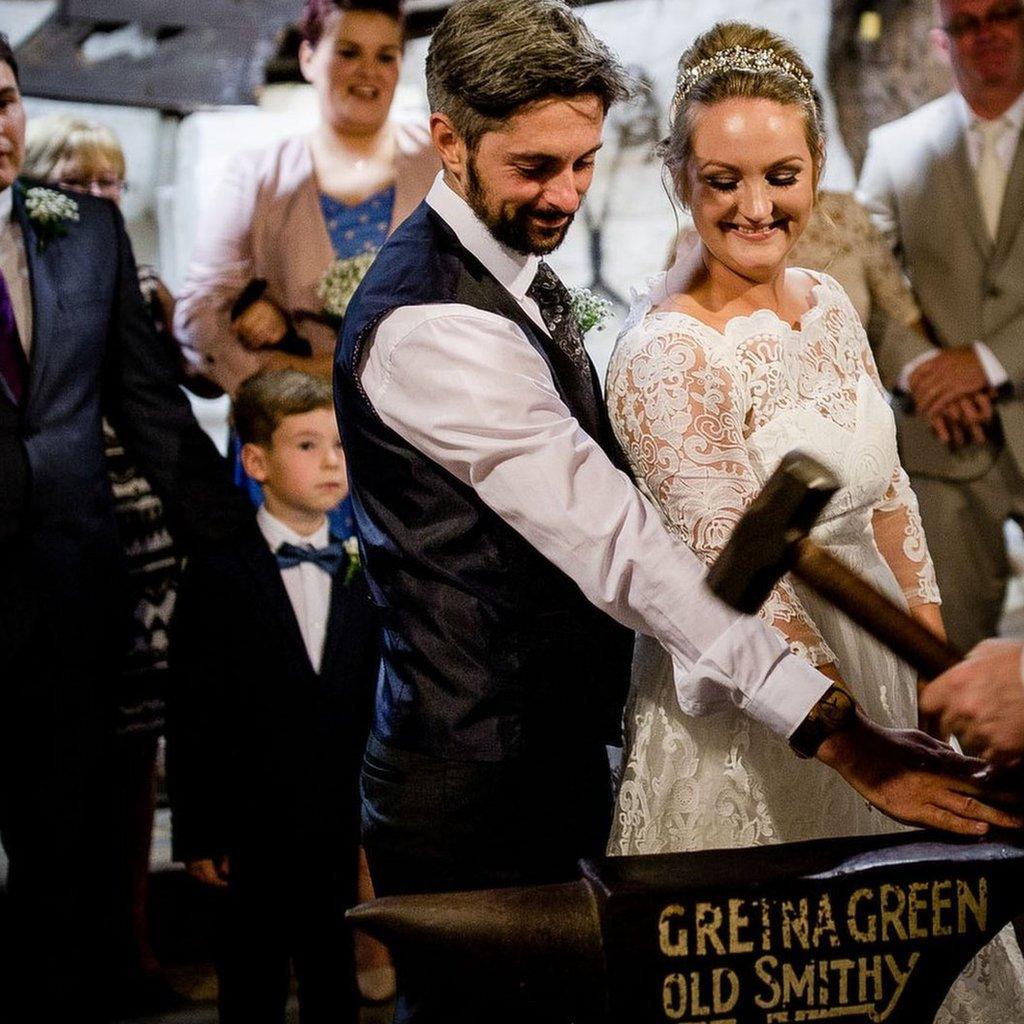

He said the same applied to many other businesses in the Gretna area, as well as across Dumfries and Galloway.
Mr Houston said the wedding industry was a "significant economic multiplier that benefits the whole region".
But what about the would-be spouses who have had to put their biggest day on hold?
He said he had a team who had spent the last three months "working tirelessly" to help couples re-plan their ceremonies.
While this could be "expensive, time consuming and emotionally demanding", he said the aim was to give couples "the outcome they want".
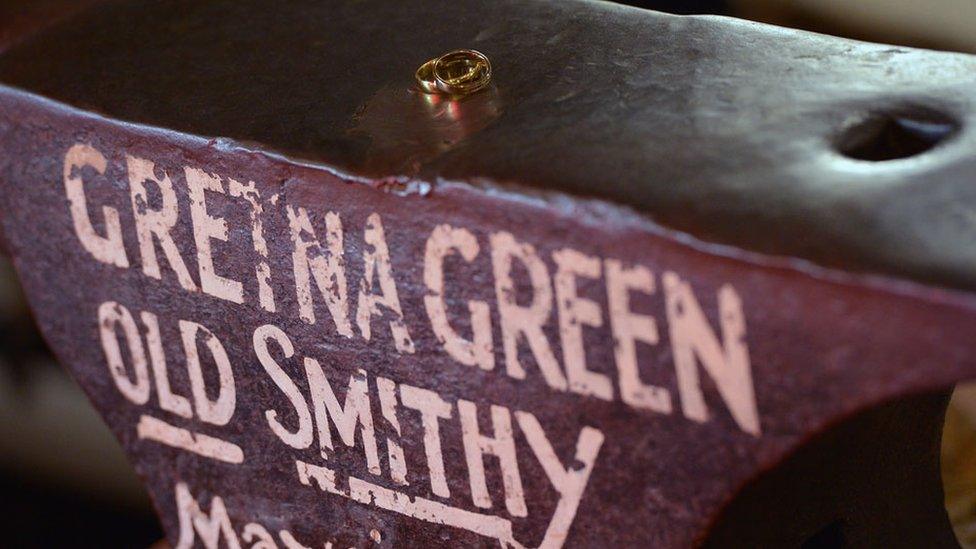
"The vast majority have been keen to re-schedule their wedding with us so they can still be part of the Gretna Green heritage," he said.
"Given that Gretna Green hosts around 10% of all the weddings in Scotland, this has been a major task as we have already had to re-plan around 700 weddings to date.
"We believe many more will choose to re-schedule until such time as proper hospitality can be enjoyed again."
He added that there were some positive signs.
"People are looking ahead to when this is all over and significant numbers of new wedding inquiries are coming through to the team, as well as re-scheduling postponed ones," he said.
"Our buildings are empty but some teams are very busy."
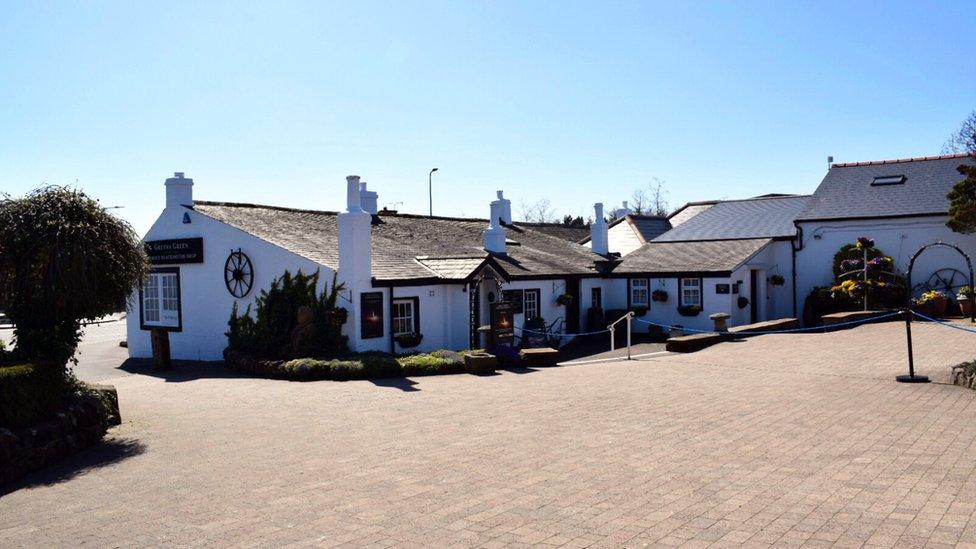
Gretna Green is normally a "hive of activity"
In the meantime, from a position so close to the border, Mr Houston is watching the pace of restrictions being lifted by the Scottish and UK governments closely.
"Any differences between regulations in England and Scotland would be very confusing and difficult," he said.
"Most of our couples are from England: they don't see the Scottish news or read a Scottish newspaper and it's unfair to expect them to follow the guidelines both sides of the border.
"It's really important that any political point-scoring is put aside whilst livelihoods are now more under threat than lives."

RISK AT WORK: How exposed is your job?
EXERCISE: What are the guidelines on getting out?
THE R NUMBER: What it means and why it matters
RECOVERY: How long does it take to get better?

- Published5 June 2019
